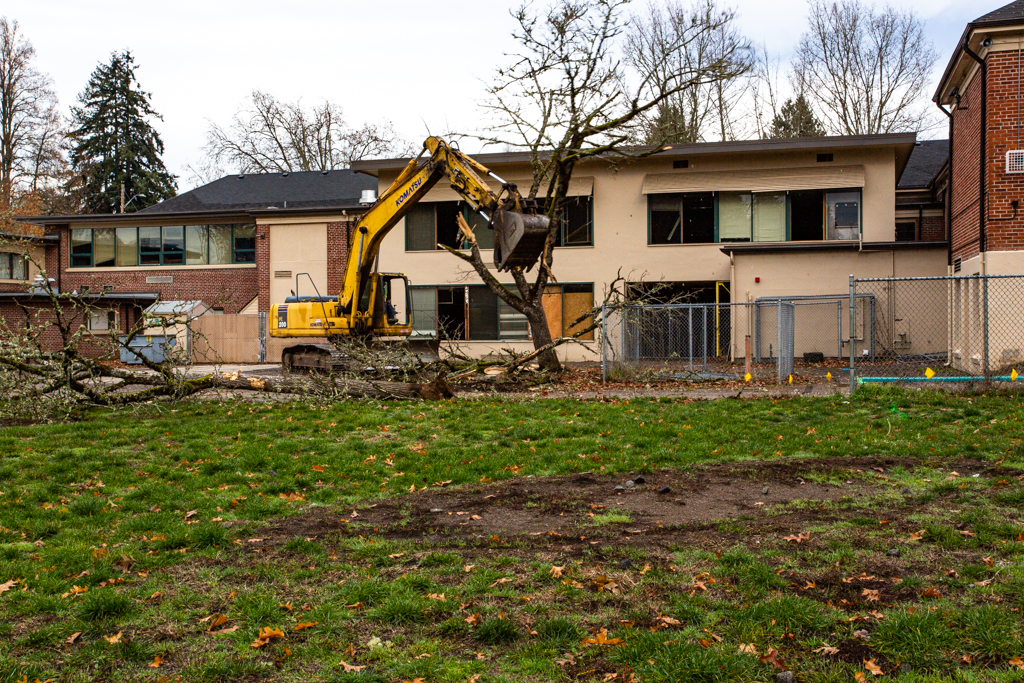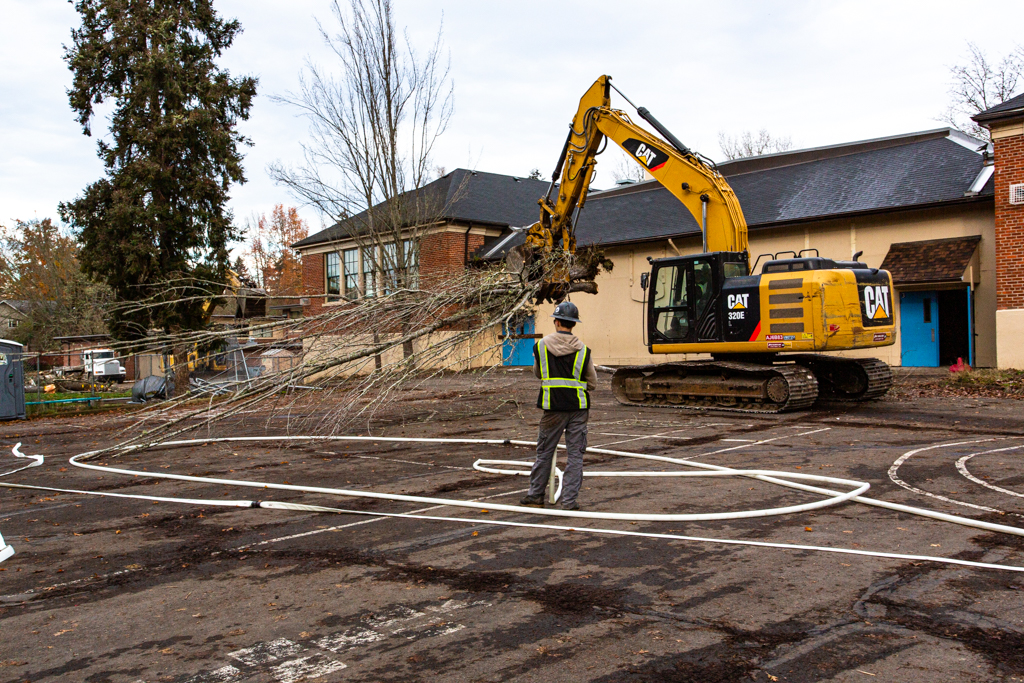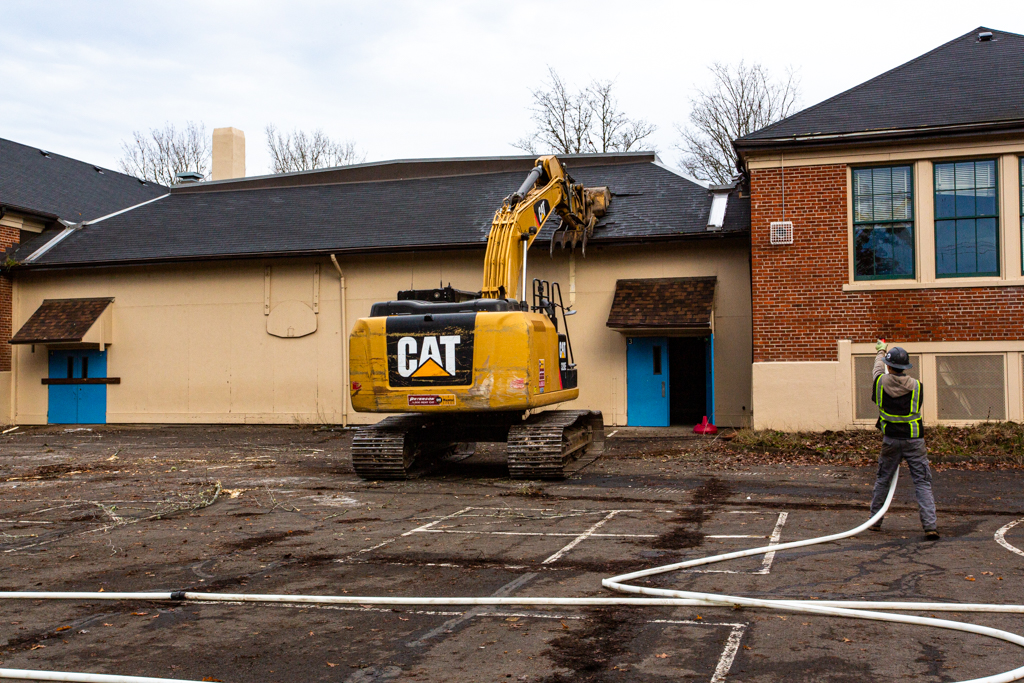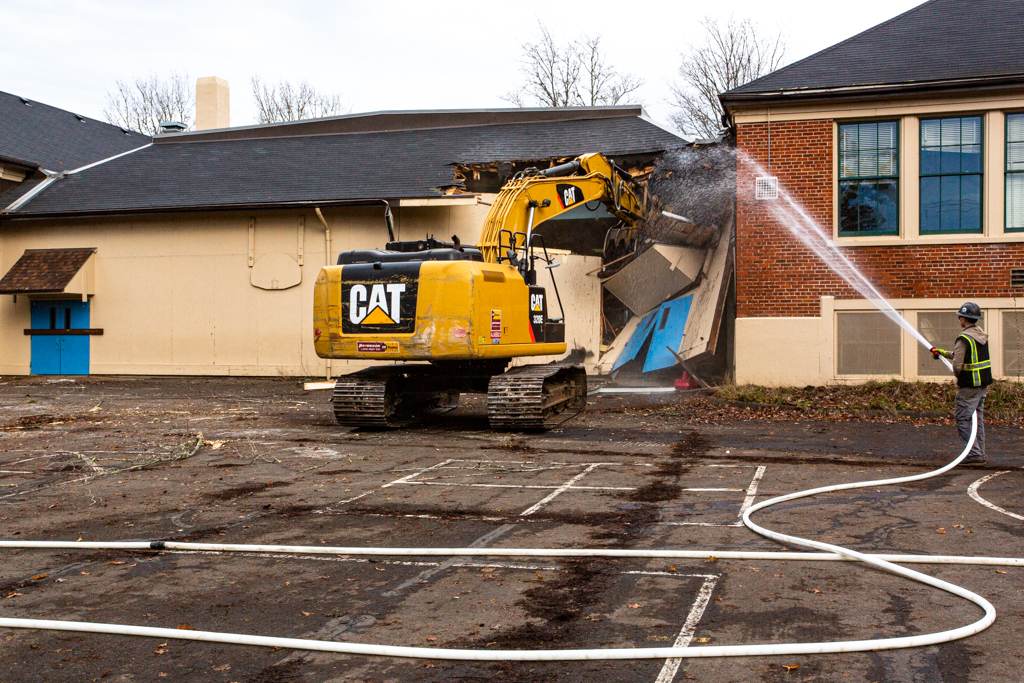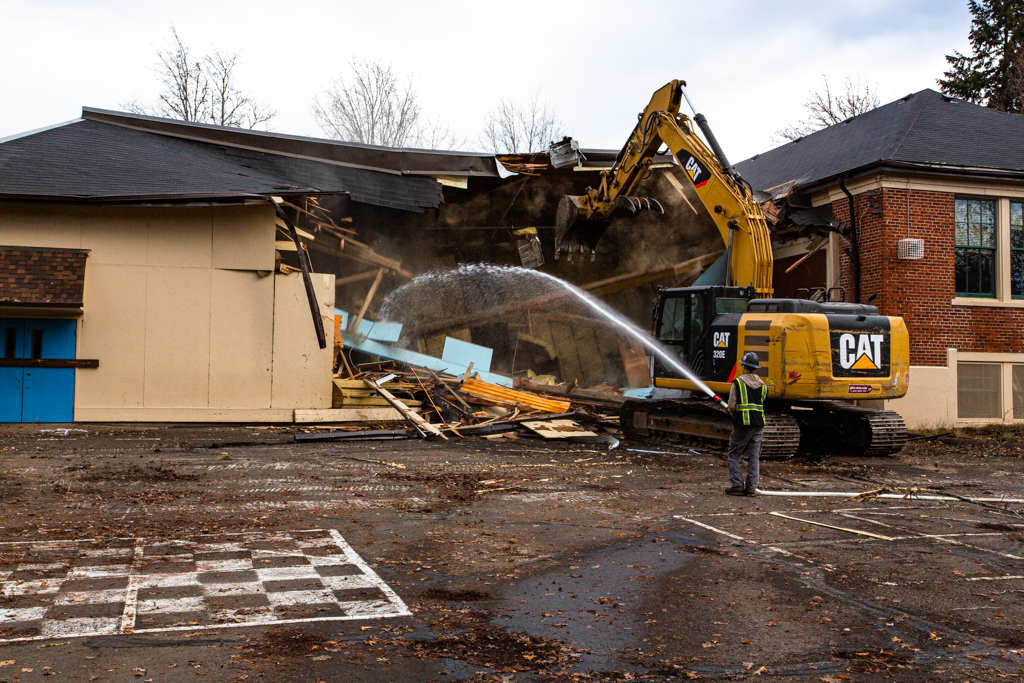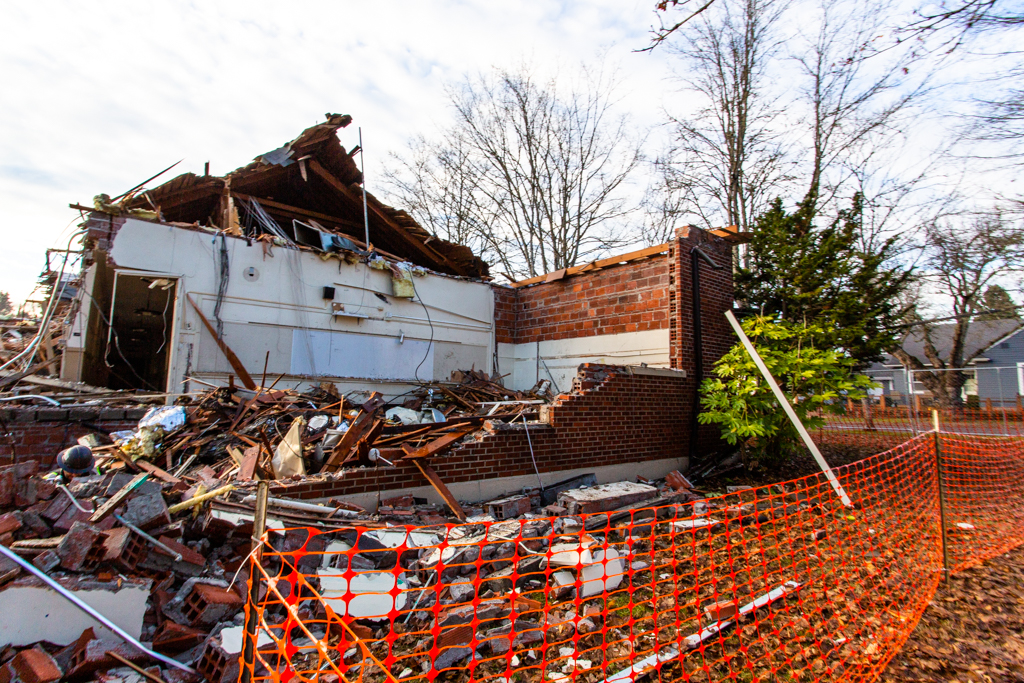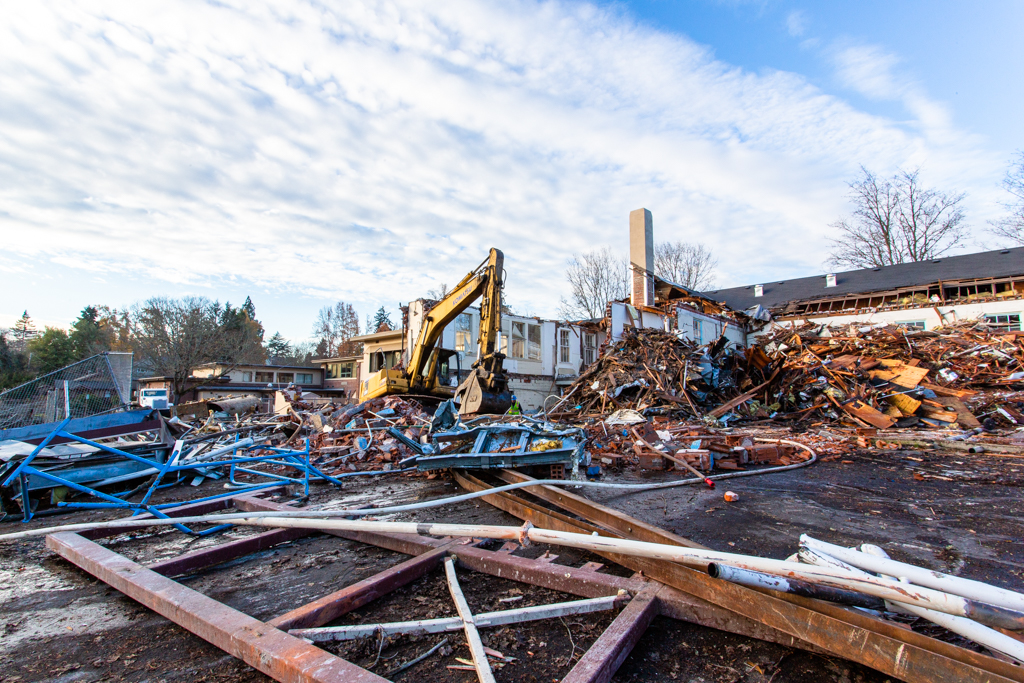Información en español
December 2, 2020
School Board Work Session & Regular Meeting
On Wednesday, Dec. 2, the school board held a work session and regular meeting. The meeting was held virtually in an effort to reduce the spread of coronavirus COVID-19. The meeting was open to the public via live video on Zoom, audio stream, and radio broadcast on KRVM 1280-AM. Public comment was received via email and live public comment using Zoom.
Work Session
The board held a work session to discuss the goals and process for evaluating the superintendent’s performance in 2020–21. The board evaluates the superintendent’s job performance annually under the timeline set forth in the superintendent’s employment contract. The evaluation is based on the job duties described in the superintendent’s contract, board policy and progress in attaining goals established by the superintendent and board. The superintendent’s goals for the current school year center on maintaining and communicating a balanced budget; keeping bond-funded projects moving forward; and supporting students, families and staff. The board’s discussions with the superintendent about their performance are conducted in executive session. A summary of the evaluation is presented publicly.
Regular Meeting
Introductory Comments
Interim Superintendent Cydney Vandercar noted the end of the first trimester is approaching. She said many students are struggling online, and 4J teachers and other staff members are working hard to help them. She acknowledged the hardships but noted the challenges are an opportunity to grow as educators and as a district while helping students learn and succeed.
She said the district has begun budgeting for the 2021–22 school year. The first milestone in the biannual state budget development process came on Tuesday, when Gov. Kate Brown presented her recommended budget for the coming two-year fiscal cycle. The Governor’s recommended budget would provide $9.1 billion for the State School Fund, the main source of operating revenue for K–12 public schools in Oregon. Superintendent Vandercar noted that this budget, if approved as proposed, about a 1% increase over the previous biennium, would not provide enough revenue for school districts including 4J to maintain their current service levels.
Superintendent Vandercar said that while some people might assume that school districts are saving a great deal while students are learning at a distance, that is not the case. Because the district is continuing to provide education and services during distance learning, it does not save much money not having students in school buildings, she said. Labor costs account for about 84 percent of 4J’s annual operating budget, and staff are continuing to work with students learning from home. The district also is incurring higher costs for, among other things, the technology, increased internet capacity and staffing that comprehensive distance learning requires. The board will receive a financial update at its Dec. 16 meeting.
Items for Information (no board action is expected to be taken)
• Received an update on COVID-19 and comprehensive distance learning: District staff provided updates on school sports, meal service and the ongoing planning for students to return to school buildings in a hybrid of on-site and online learning when public health conditions allow.
The earliest that students could return to school buildings for hybrid on-site/online learning would be the third week of January, although that would require a significant reduction of the current spread of COVID-19 in Lane County. The district’s current planning is that the youngest elementary school students would return first, followed by older elementary students. Middle and high students may follow some weeks later if elementary schools can demonstrate the ability to limit transmission of the virus in the school environment.
Families were offered the choice of three learning pathways this fall: Same School Hybrid (when it begins), Same School Online, and Eugene Online Academy. Students may request to switch to a different learning pathway option at the term change. The new trimester for middle and high schools begins on December 14, and the new semester for elementary schools begins on February 1. Families were invited to submit their requests to change pathways next term in November. Most students are continuing with their original pathway choice, but families of nearly 800 students requested a change next term. The requests are fairly balanced, with some students requesting to change from online-only to the hybrid option and vice versa. The district will seek to minimize impacts, but the movement of these students may cause some disruption, with some students having to change teachers and some educators shifting to new teaching assignments.
The district is awaiting guidance from the Oregon School Activities Association as it continues to plan for the return of prep sports. OSAA’s first shortened sports season of the year is slated to begin Dec. 28 with sports normally held during the winter. OSAA’s executive board will meet Dec. 7 to discuss the upcoming season. The district had been planning toward resuming some athletic workouts and training prior to the start of the season, but has not yet begun to allow this because of the sharp increase in COVID cases in Lane County in recent weeks.
4J’s nutrition services team has prepared and distributed more than 1 million free meals since mid-March, when school buildings were closed due to the pandemic. The district will continue to provide free meals during winter break, with staff providing meal boxes with seven days of food from its youth meal distribution sites on Friday, Dec. 18. A second weekly meal box for students and youth will be available at the 4J Education Center on Monday, Dec. 28.
• Received an update on the statewide assessment and accountability waiver: Due to impacts of the coronavirus pandemic, the Oregon Department of Education has applied to waive the federal requirement to administer the English Language Arts, Mathematics and Science state assessments in the spring.
ODE has released a student assessment plan with three possible main components in lieu of the annual statewide assessments. The plan would prioritize limited on-site assessment for English language learners and special education students, provide interim assessments and other assessment tools to teachers, and administer to all Oregon students a survey to determine access to educational resources and opportunities to learn.
If the federal Department of Education denies ODE’s request, the department is planning to have only in-person testing and reduce the combined testing time for language arts and math to 2.5 hours instead of the current average of 7.5 hours.
Items for Action
• Adopted a policy on hate symbols and bias incidents: On Sept. 17, the Oregon State Board of Education approved the temporary All Students Belong rule that bans the presence or use of hate symbols, including the swastika, noose and Confederate flag, on school grounds or in any school or educational program that receives state revenue. It also requires school districts to adopt a policy banning hate symbols and establish procedures to address bias incidents. The temporary rule allows the use of the symbols in teaching that aligns with state standards.
Policy ACB – Hate Symbols and Bias Incidents is intended to meet the requirements of the state rule. It defines hate symbols, bias incidents and hate crimes; prohibits them on district properties and in district programs; affirms that students and staff are entitled to work in discrimination- and harassment-free educational environments; and directs the superintendent to develop rules necessary to implement the policy. The vote was unanimous, 6–0, with board member Gordon Lafer absent from the meeting.
• Approved the job performance evaluation process for the interim superintendent during the 2020–21 school year: The board evaluates the superintendent’s job performance annually under the timeline set forth in the superintendent’s employment contract. The evaluation is based on the job duties described in the superintendent’s contract, board policy and progress in attaining goals established by the superintendent and board. The superintendent’s goals for the current school year center on maintaining and communicating a balanced budget; keeping bond-funded projects moving forward; and supporting students, families and staff. The board’s discussions with the superintendent about their performance are conducted in executive session. A summary of the evaluation is presented publicly. The vote was unanimous, 6–0.
• Approved board goals for the 2020–21 school year: The board sets goals each year. This year’s goals are navigating 4J through the challenges posed by the coronavirus pandemic; adopting a district-wide safety plan; and planning for the North Eugene region. The vote was unanimous, 6–0.
• Approved items on the consent agenda: The board approved a 1.75% cost-of-living adjustment and other changes for the employee group that includes 4J managers, administrators, professionals and supervisors, matching the wage adjustment provided to teachers and licensed specialists for the current school year. The board also approved the official minutes of the Oct. 7, Oct. 21 and Nov. 4 board meetings. The vote was unanimous, 6–0.
Items for Future Action (board action is expected at a later meeting)
• Discussed legislative priorities for the 2021 session: The proposed priorities include ensuring stable funding in basic school support; continuing and expanding support for the rollout of the Student Success Act; and minimizing the impact enrollment shifts stemming from the coronavirus pandemic have on state financial support to K–12 schools.
• Considered revisions to board policies: The board discussed recommended revisions to several policies:
– GBEB – Communicable Diseases – Staff
– GBL – Personnel Records
– GBH/JECAC – Staff/Student/Parent Relations > Custodial and Noncustodial Parents
– JECAC/GBH – Staff/Student/Parent Relations > Custodial and Noncustodial Parents
– JHCC – Communicable Diseases – Students
The proposed changes to GBL – Personnel Records relate to sharing investigatory or other personnel information with outside agencies when an employee is suspected of child abuse or sexual conduct. The other proposed revisions also are intended to align the board policies with current state regulations or best practices.
Public Input
The board heard live public comment via Zoom for the first time at this meeting. Four speakers spoke about educational equity, standardized testing, comprehensive distance learning and reopening of school buildings. To request to speak to the school board, community members may complete an online request form by 12 p.m. on the Monday before the next regular board meeting.
Four residents also submitted public comment via email to board@4j.lane.edu. The emails discussed live public comment, reopening school buildings and resuming prep sports. The board read, reviewed and took into consideration all comments submitted by email by 12 p.m. the day of the meeting.
Agenda and Materials
Dec. 2 agenda and materials
Dec. 2 board work session recording
Dec. 2 regular meeting recording
NOTE: This is a quick summary of the topics and actions at a meeting of the school board. This document is NOT the official minutes of the school board. Official minutes are posted after they are drafted, reviewed and approved by the board. Audio recordings of meetings are typically posted within two days after the meeting.
School Board Meeting Schedule & Information
Resumen de la reunión de la junta del 2 de diciembre de 2020
Sesión de trabajo de la junta escolar y reunión regular
El miércoles 2 de diciembre, la junta escolar realizó una sesión de trabajo y una reunión regular. La reunión se llevó a cabo virtualmente en un esfuerzo por reducir la propagación del coronavirus COVID-19. La reunión estuvo abierta al público a través de Zoom, por transmisión de audio en línea y en vivo por radio en la KRVM 1280-AM. Los comentarios públicos se recibieron por correo electrónico y también hubo comentarios públicos en vivo usando Zoom.
Sesión de trabajo
La junta llevó a cabo una sesión de trabajo para discutir las metas y el proceso para evaluar el desempeño de la superintendente en 2020–21. La junta evalúa el desempeño laboral de la superintendente anualmente según la línea de tiempo establecida en el contrato de trabajo de la superintendente. La evaluación se basa en los deberes laborales descritos en el contrato de la superintendente, la política de la junta y el progreso en el logro de las metas establecidas por la superintendente y la junta. Las metas de la superintendente para el año escolar actual se centran en mantener y comunicar un presupuesto equilibrado; hacer que los proyectos financiados con bonos avancen; y apoyar a los estudiantes, las familias y el personal. Las discusiones de la junta con la superintendente sobre su desempeño se llevan a cabo en una sesión ejecutiva. Se presenta públicamente un resumen de la evaluación.
Reunión regular
Comentarios introductorios
La superintendente interina Cydney Vandercar señaló que se acerca el final del primer trimestre. Dijo que muchos estudiantes tienen dificultades en línea y que los maestros de 4J y otros miembros del personal están trabajando arduamente para ayudarlos. Reconoció las dificultades, pero señaló que los desafíos son una oportunidad para crecer como educadores y como distrito mientras se ayuda a los estudiantes a aprender y tener éxito.
Ella dijo que el distrito ha comenzado a presupuestar para el año escolar 2021-22. El primer hito en el proceso de desarrollo del presupuesto estatal bianual se produjo el martes, cuando la gobernadora Kate Brown presentó su presupuesto recomendado para el próximo ciclo fiscal de dos años. El presupuesto recomendado por la gobernadora proporcionará $9.1 billones para el Fondo Escolar Estatal, la principal fuente de ingresos operativos para las escuelas públicas K-12 en Oregón. La superintendente Vandercar señaló que este presupuesto, si se aprueba como se propone, con un aumento de alrededor del 1% con respecto al bienio anterior, no proporciona ingresos suficientes para que los distritos escolares, incluyendo al 4J, mantengan sus niveles de servicio actuales.
La superintendente Vandercar dijo que si bien algunas personas pueden suponer que los distritos escolares están ahorrando mucho mientras los estudiantes aprenden a distancia, ese no es el caso. Debido a que el distrito continúa brindando educación y servicios durante el aprendizaje a distancia, no ahorra mucho dinero al no tener estudiantes en los edificios escolares, dijo. Los costos laborales representan aproximadamente el 84 por ciento del presupuesto operativo anual de 4J, y el personal continúa trabajando con los estudiantes que aprenden desde casa. El distrito también está incurriendo en costos más altos, entre otras cosas, por la tecnología, la mayor capacidad de Internet y el personal que requiere el aprendizaje integral a distancia. La junta recibirá una actualización financiera en su reunión del 16 de diciembre.
Puntos de información (no se espera que se tomen medidas por parte de la junta)
- Se recibió una actualización sobre COVID-19 y el aprendizaje integral a distancia: El personal del distrito proporcionó actualizaciones sobre los deportes escolares, el servicio de comidas y la planificación continua para que los estudiantes regresen a los edificios escolares en un híbrido. de aprendizaje presencial y en línea cuando las condiciones de salud pública lo permitan.
Lo más temprano que los estudiantes podrán regresar a los edificios escolares para el aprendizaje híbrido en el sitio/en línea será la tercera semana de enero, aunque eso requiera una reducción significativa de la propagación actual de COVID-19 en el condado de Lane. La planificación actual del distrito es que los estudiantes de escuela primaria más jóvenes regresen primero, seguidos por los estudiantes de primaria mayores. Los estudiantes de secundaria y preparatoria pueden seguir algunas semanas más tarde si las escuelas primarias pueden demostrar la capacidad de limitar la transmisión del virus en el entorno escolar.
A las familias se les ofreció la opción de tres vías de aprendizaje este otoño: Misma escuela híbrida (cuando comience), Misma escuela en línea y Eugene Online Academy. Los estudiantes pueden solicitar cambiar a una opción de ruta de aprendizaje diferente en el cambio de período. El nuevo trimestre para las escuelas intermedias y secundarias comienza el 14 de diciembre y el nuevo semestre para las escuelas primarias comienza el 1 de febrero. Se invitó a las familias a presentar sus solicitudes para cambiar de ruta el próximo período en noviembre. La mayoría de los estudiantes continúan con su elección de ruta original, pero las familias de casi 800 estudiantes solicitaron un cambio el próximo período. Las solicitudes están bastante equilibradas, con algunos estudiantes que solicitan cambiar de solo en línea a la opción híbrida y viceversa. El distrito buscará minimizar los impactos, pero el movimiento de estos estudiantes puede causar alguna interrupción, ya que algunos estudiantes tendrán que cambiar de maestros y algunos educadores cambiarán a nuevas asignaciones de enseñanza.
El distrito está esperando la orientación de la Asociación de Actividades Escolares de Oregón mientras continúa planificando el regreso de los deportes de preparación. La primera temporada deportiva abreviada del año de la OSAA está programada para comenzar el 28 de diciembre y los deportes normalmente se llevan a cabo durante el invierno. La junta ejecutiva de OSAA se reunirá el 7 de diciembre para discutir la próxima temporada. El distrito había estado planeando reanudar algunos entrenamientos y entrenamientos atléticos antes del comienzo de la temporada, pero aún no ha comenzado a permitirlo debido al fuerte aumento de casos de COVID en el condado de Lane en las últimas semanas.
El equipo de servicios de nutrición de 4J ha preparado y distribuido más de 1 millón de comidas gratuitas desde mediados de marzo, cuando se cerraron los edificios escolares debido a la pandemia. El distrito continuará brindando comidas gratuitas durante las vacaciones de invierno, y el personal proporcionará cajas de comida con alimentos para siete días desde sus sitios de distribución el viernes 18 de diciembre. Una segunda caja de comida semanal para estudiantes y jóvenes estará disponible en el Education Center de 4J el lunes 28 de diciembre.
- Se recibió una actualización sobre la evaluación estatal y la exención de responsabilidad: Debido a los impactos de la pandemia de coronavirus, el Departamento de Educación de Oregón solicitó la exención del requisito federal para administrar Artes del Lenguaje Inglés, Matemáticas y Evaluaciones estatales de ciencias en la primavera.
ODE ha publicado un plan de evaluación de estudiantes con tres posibles componentes principales en lugar de las evaluaciones estatales anuales. El plan priorizaría una evaluación limitada en el lugar para los estudiantes de inglés y de educación especial, proporcionaría evaluaciones provisionales y otras herramientas de evaluación a los maestros y administraría una encuesta a todos los estudiantes de Oregón para determinar el acceso a recursos educativos y oportunidades de aprendizaje.
Si el Departamento de Educación federal niega la solicitud de ODE, el departamento planea tener solo pruebas en persona y reducir el tiempo de prueba combinado para artes del lenguaje y matemáticas a 2.5 horas en lugar del promedio actual de 7.5 horas.
Puntos de acción
- Se adoptó una política sobre símbolos de odio e incidentes de prejuicio: El 17 de septiembre, la Junta de Educación del Estado de Oregón aprobó la regla temporal Todos los estudiantes pertenecen que prohíbe la presencia o el uso de símbolos de odio, incluida la esvástica, la soga y la bandera confederada. , en terrenos escolares o en cualquier escuela o programa educativo que reciba ingresos estatales. También requiere que los distritos escolares adopten una política que prohíba los símbolos de odio y establezca procedimientos para abordar incidentes de prejuicios. La regla temporal permite el uso de los símbolos en la enseñanza que se alinea con los estándares estatales.
La política ACB – Incidentes de prejuicios y símbolos de odio tiene como objetivo cumplir con los requisitos de la regla estatal. Define símbolos de odio, incidentes de prejuicio y crímenes de odio; los prohíbe en las propiedades del distrito y en los programas del distrito; afirma que los estudiantes y el personal tienen derecho a trabajar en entornos educativos libres de discriminación y acoso; y ordena al superintendente que desarrolle las reglas necesarias para implementar la política. La votación fue unánime, 6-0, con el miembro de la junta Gordon Lafer ausente de la reunión.
- Se aprobó el proceso de evaluación del desempeño laboral de la superintendente interina durante el año escolar 2020–21: La junta evalúa el desempeño laboral de la superintendente anualmente según el cronograma establecido en el contrato de trabajo de la superintendente. La evaluación se basa en los deberes laborales descritos en el contrato de la superintendente, la política de la junta y el progreso en el logro de las metas establecidas por el superintendente y la junta. Las metas de la superintendente para el año escolar actual se centran en mantener y comunicar un presupuesto equilibrado; hacer que los proyectos financiados con bonos avancen; y apoyar a los estudiantes, las familias y el personal. Las discusiones de la junta con el superintendente acerca de su desempeño se llevan a cabo en una sesión ejecutiva. Se presenta públicamente un resumen de la evaluación. La votación fue unánime, 6-0.
- Metas aprobadas por la junta para el año escolar 2020–21: La junta establece metas cada año. Los objetivos de este año son navegar 4J a través de los desafíos planteados por la pandemia de coronavirus; adoptar un plan de seguridad para todo el distrito; y planificación para la región del norte de Eugene. La votación fue unánime, 6-0.
- Puntos aprobados en la agenda de consenso: La junta aprobó un ajuste por costo de vida del 1.75 % y otros cambios para el grupo de empleados que incluye gerentes, administradores, profesionales y supervisores de 4J, igualando el ajuste salarial proporcionado a maestros y especialistas con licencia para el año escolar actual. La junta también aprobó las actas oficiales de las reuniones de la junta del 7 de octubre, 21 de octubre y 4 de noviembre. La votación fue unánime, 6-0.
Puntos para acción futura (se espera acción de la junta en una reunión posterior)
- Prioridades legislativas discutidas para la sesión de 2021: Las prioridades propuestas incluyen garantizar una financiación estable en el apoyo escolar básico; continuar y expandir el apoyo para la implementación de la Ley de Éxito Estudiantil; y minimizar el impacto que tienen los cambios de inscripción derivados de la pandemia de coronavirus en el apoyo financiero estatal a las escuelas K-12.
- Revisiones consideradas a las políticas de la junta: La junta discutió las revisiones recomendadas a varias políticas:
– GBEB – Enfermedades transmisibles – Personal
– GBL – Registros personales
– GBH/JECAC – Personal/Estudiante/Relaciones con los padres > Padres con y sin custodia
– JECAC/GBH – Personal /Relaciones entre estudiantes y padres > Padres con y sin custodia
– JHCC – Enfermedades transmisibles – Estudiantes
Los cambios propuestos a GBL: Los registros de personal se relacionan con el intercambio de información de investigación u otra información del personal con agencias externas cuando se sospecha que un empleado comete abuso infantil o conducta sexual. Las otras revisiones propuestas también tienen la intención de alinear las políticas de la junta con las regulaciones estatales actuales o las mejores prácticas.
Aporte público
La junta escuchó comentarios públicos en vivo a través de Zoom por primera vez en esta reunión. Cuatro oradores hablaron sobre equidad educativa, pruebas estandarizadas, aprendizaje integral a distancia y reapertura de edificios escolares. Para solicitar hablar con la junta escolar, los miembros de la comunidad pueden completar un formulario de solicitud en línea antes de las 12:00 p. m. del lunes anterior a la próxima reunión regular de la junta.
Cuatro residentes también enviaron comentarios públicos por correo electrónico a board@4j.lane.edu. Los correos electrónicos discutían los comentarios públicos en vivo, la reapertura de los edificios escolares y la reanudación de los deportes de preparación. La junta leyó, revisó y tomó en consideración todos los comentarios enviados por correo electrónico antes de las 12:00 p. m. del día de la reunión.
Agenda y materiales
Agenda y materiales de la reunión del 2 de diciembre
Audio de la sesión de trabajo del 2 de diciembre
Audio de la reunión regular del 2 de diciembre
NOTA: Este es un breve resumen de los temas y acciones de una reunión de la junta escolar. Este documento NO es el acta oficial de la junta escolar. Las actas oficiales se publican después de que son redactadas, revisadas y aprobadas por la junta. Las grabaciones de audio de las reuniones generalmente se publican dentro de los dos días posteriores a la reunión.
Calendario e información de las reuniones de la junta escolar
